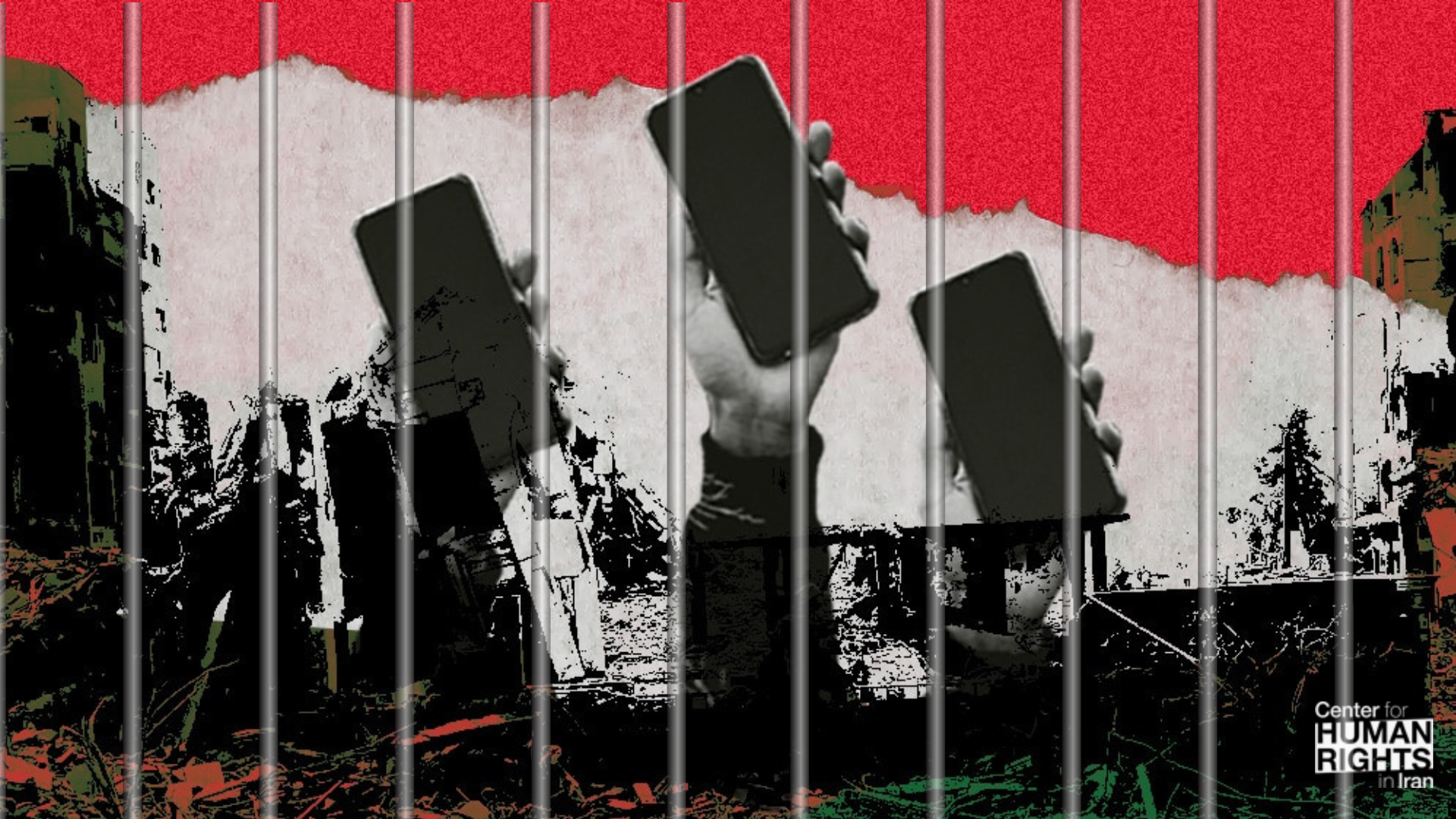Iran: Proposed Cyber Bill Gives Authorities Sweeping New Powers to Block and Punish Online Content

If Approved, Law Could Criminalize Any Content the Authorities Consider “False”
July 29, 2025—A sweeping new bill currently under fast-track review by Iran’s parliament would grant the government—and online platforms operating in Iran—sweeping new powers to block online content, and significantly increase the punishments for spreading content that the authorities consider “false information.” If passed, the bill could turn almost any online expression into a punishable offense under the guise of combating “fake news.”
Submitted with “double urgency” by the Ministry of Justice under Iranian President Masoud Pezeshkian, the “Bill on Combating the Spread of False News Content in Cyberspace” must be voted on within 30 days, bypassing normal legislative debate.
“This bill is using the fear and disarray created by Iran’s recent war with Israel to further crush any peaceful dissent in Iran. If it becomes law, any form of opinion or expression could be considered a crime,” said Behnam Daraeizadeh, senior researcher and legal expert at the Center for Human Rights in Iran (CHRI).
Key Points
- Expanded criminal penalties:
-
- The bill stipulates fines, bans from media work, and prison terms that have now been increased to up to two years for publishing “false” content or “fake news.” (Article 12)
- In cases related to national security, organized collaboration with foreign governments, or other similar charges, prison terms (under Article 13) can now reach up to five years.
- In special or crisis situations, or in wartime conditions, the bill allows for one degree of escalation in sentencing (Degree 4), which can result in up to 10 years in prison.
- Moreover, given the current context in the country, the drafters have included “corruption on earth” (efsad fel-arz) as a possible charge under Article 14, meaning that capital punishment (execution) remains a real possibility in these types of cases, depending on how the judiciary proceeds.
- Vague, sweeping definitions: The bill uses broad and unclear definitions of “false news,” giving both state agencies and private platforms broad discretion to classify content as false and determine violations, opening the door to arbitrary enforcement.
- Massive scope: The bill extends its reach beyond traditional media to include individuals, influencers, and online platforms—especially those with large followings—such as Instagram, Telegram, X, YouTube, and other networks.
- Targeting of influencers: The bill specifically targets social media platforms, channels, or accounts with more than 90,000 followers, increasing scrutiny of influencers. Accordingly, Article 15, which deals with influencers and public figures, provides harsher penalties. It stipulates that if such individuals publish false information under ordinary conditions, their base punishment (2 years) can be increased to 5 years in prison. If the same figures publish false content during crises or wartime, their greater influence on public opinion leads to a more severe punishment of up to 15 years of imprisonment.
- New censorship powers for platforms: In a significant expansion, Article 11 grants service providers and social media platforms the authority to independently block or restrict content they deem “false” without a court order or judicial oversight, expanding state control through private actors. These companies must respond to complaints within 12 hours, formalizing their role as agents of state censorship.
- Expanded liability: Both individuals and platforms can be prosecuted for not complying with the law.
“The bill’s vague definitions of ‘false’ content allow authorities—and now even private companies—to interpret it broadly and at their discretion, and by empowering platforms to preemptively block content, the law effectively deputizes tech companies as censors, bypassing judicial oversight,” said Daraeizadeh.
Reformist Rhetoric, Authoritarian Reality
Unlike previous censorship efforts spearheaded by Iran’s conservative parliament, this bill was directly proposed by the Pezeshkian government, which, in its election slogans and rhetoric, presented itself as opposing censorship and advocated for rolling back online filtering and internet restrictions.
“What makes this politically significant is that the bill was introduced by Pezeshkian’s own administration, not by hardline lawmakers in parliament. It reflects a direct move by the government itself to impose tighter restrictions on online spaces,” Daraeizadeh added.
Building on a Growing State Crackdown
This proposed legislation comes amid an intensified state crackdown on dissent in Iran following Iran’s war with Israel, and long-simmering domestic unrest, especially since the 2022 Woman Life Freedom protests that swept the country. Arrests of activists, members of Iran’s restive minority communities, and even individuals expressing criticism of state policies on social media have continued, and executions in Iran continue to soar.
The Iranian authorities have previously tried to use crises to try to push through draconian legislation that intensifies and codifies state repression. For example, it proposed a new hijab law in the wake of the Woman Life Freedom protests. Yet the outcry against that bill, both inside and amongst the international community, prompted the Iranian government to pull back and decline enforcement.
CHRI stresses the urgent need for the international community to once again speak out against this new draft cyber bill, before it becomes law in Iran, which further erodes Iranians’ fundamental rights to freedom of expression, due process, and access to online information.
“The draft bill’s proposed expansion of already severe digital surveillance and censorship in Iran, which augments the government’s now routine use of internet shutdowns during times of unrest, will, if passed, further institutionalize the Islamic Republic as a digital police state,” said Daraeizadeh.
This report was made possible by donations from readers like you. Help us continue our mission by making a tax-deductible donation.






